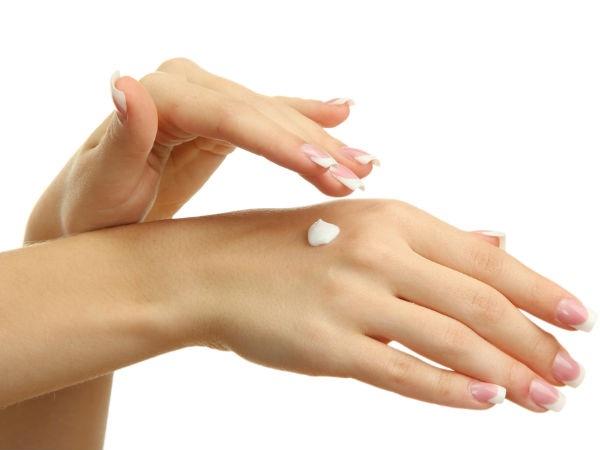 Additionally, all the areas of skin on your body are not created equally. Different skin areas are susceptible to different kinds of threats and by varying degrees, depending on the season. For instance, if you live in a cold climate you likely have experienced dry skin in those harsh winter months. However, just because you’re a warm-climate dweller, doesn’t mean you also don’t experience your share of dry-skin issues. Dry skin can cause skin to age prematurely. The face, neck, chest area, and hands are especially susceptible to looking old before their time, particularly if you’re someone who loves spending time out in the sun. And sometimes those skin moisturizers can do more harm than good. Some skin products actually contain so many chemicals that your skin probably would be better off if you didn’t use them at all. Following is information from dermatologists in New Jersey about how to prevent dry skin throughout the year. For more info on preventing dry skin contact a dermatologist near you.
Additionally, all the areas of skin on your body are not created equally. Different skin areas are susceptible to different kinds of threats and by varying degrees, depending on the season. For instance, if you live in a cold climate you likely have experienced dry skin in those harsh winter months. However, just because you’re a warm-climate dweller, doesn’t mean you also don’t experience your share of dry-skin issues. Dry skin can cause skin to age prematurely. The face, neck, chest area, and hands are especially susceptible to looking old before their time, particularly if you’re someone who loves spending time out in the sun. And sometimes those skin moisturizers can do more harm than good. Some skin products actually contain so many chemicals that your skin probably would be better off if you didn’t use them at all. Following is information from dermatologists in New Jersey about how to prevent dry skin throughout the year. For more info on preventing dry skin contact a dermatologist near you.
Hands
Cold weather
Winter is especially unforgiving on your hands. Even folks who spend most of their time indoors get dry, cracked hands during the coldest months of the year. In fact, fighting off those winter elements often can be the reason for the dry skin that hands encounter. Cranking up that indoor heat is a major factor in the development of that overly dry, crackly skin many of us experience in winter. To avoid dry skin on your hands in winter, always wear gloves whenever you go outside. And be extra mindful of wearing the right kind of protective gloves when you’re working outside in extreme weather conditions.
Warmer weather
But make no mistake about it—winter isn’t the only season that can be hard on the skin on your hands. Summer and even fall can make for some pretty dry skin on your hands, especially if you work outdoors. Just like in winter, it’s especially important to wear gloves whenever you’re doing any kind of work outside. And don’t forget gloves when you’re working indoors, either. Cleaning products are particularly hard on hands, and don’t rule out chemical-filled moisturizers that may be making your hands dry. When it comes to preventing dry skin, natural products that contain no chemicals are still the best way to prevent dryness in any weather.
Face, neck, and chest
Cold weather
No matter what the weather is like outside, these areas of your body are particularly vulnerable to the elements because of their exposure. Your face, neck, and chest need a good skincare routine in order to prevent dryness. Start with warm water. Cold water is too harsh on faces, especially in winter, and it can be too harsh on neck skin that is often prone to aging first. Additionally, hot water actually exfoliates skin, so you only want to use hot when stripping skin of dead cells. Set the temp at just above lukewarm when washing your face, neck, and chest area. From there, be sure to use a mild soap or facial cleanser. (Facial cleansers that are mild can also be used on the neck and chest skin.) Because these areas of your skin are exposed to winter elements, it’s important to cleanse every morning and every night, but do it gently. You’ll also need a good moisturizer, but remember—moisturizers that contain harsh chemicals aren’t the way to go. Try Shea butter for its natural moisturizing properties that love facial and neck skin.
Warmer weather
Just like in winter, your face, neck, and chest need a twice-daily cleansing routine in summer and also in spring and fall. Whatever you use in winter should suffice in summer and the other seasons as well, especially if you’ve followed up your mild cleansing routine with Shea butter or another natural cleanser. Additionally, be sure never to rub your facial or neck skin dry, especially after it’s been under the hot sun. Pat skin dry with a baby’s wash cloth instead of a standard wash cloth. Not only will a baby’s wash cloth be gentler on your facial skin; it will also help to gently exfoliate dead skin cells.
Your skin will love you if you follow a gentle cleansing routine that washes away dirt and protects it from the elements in all types of weather. If you’re looking for more tips on how to prevent dry skin in all climates and for all areas of your body, consult with a dermatologist near you who can find a routine that’s just right for your specific skin type.

